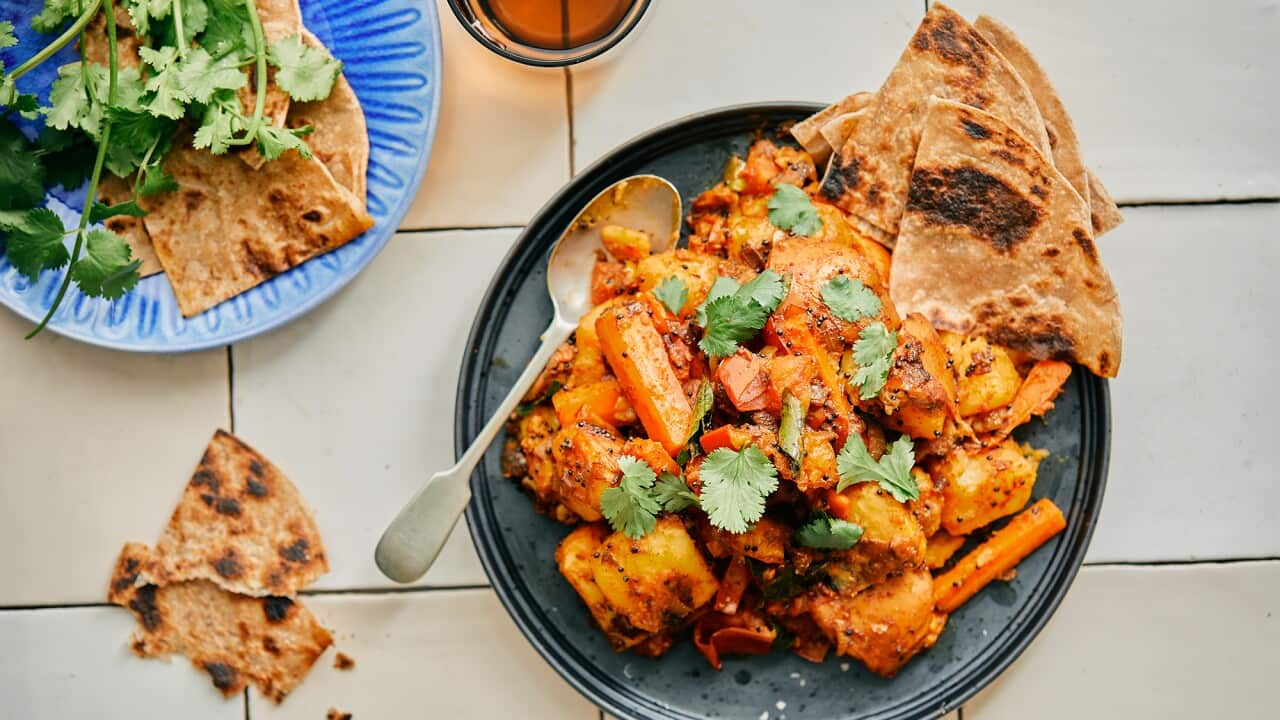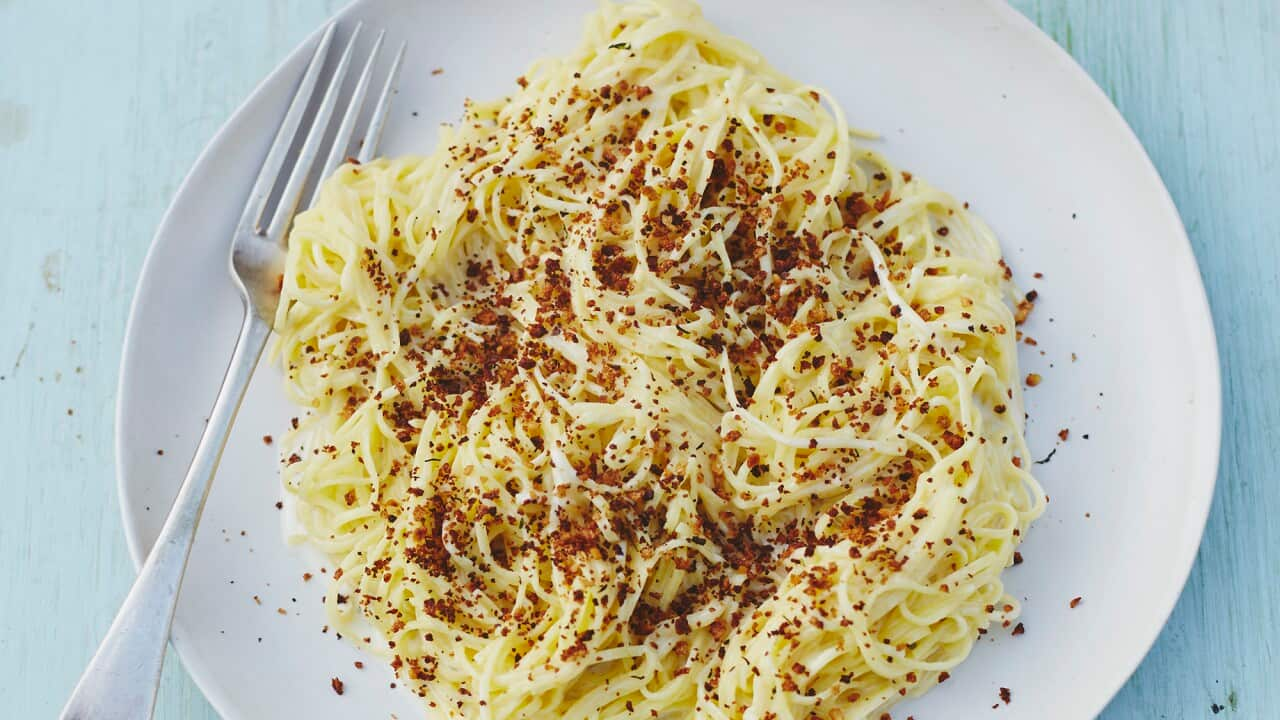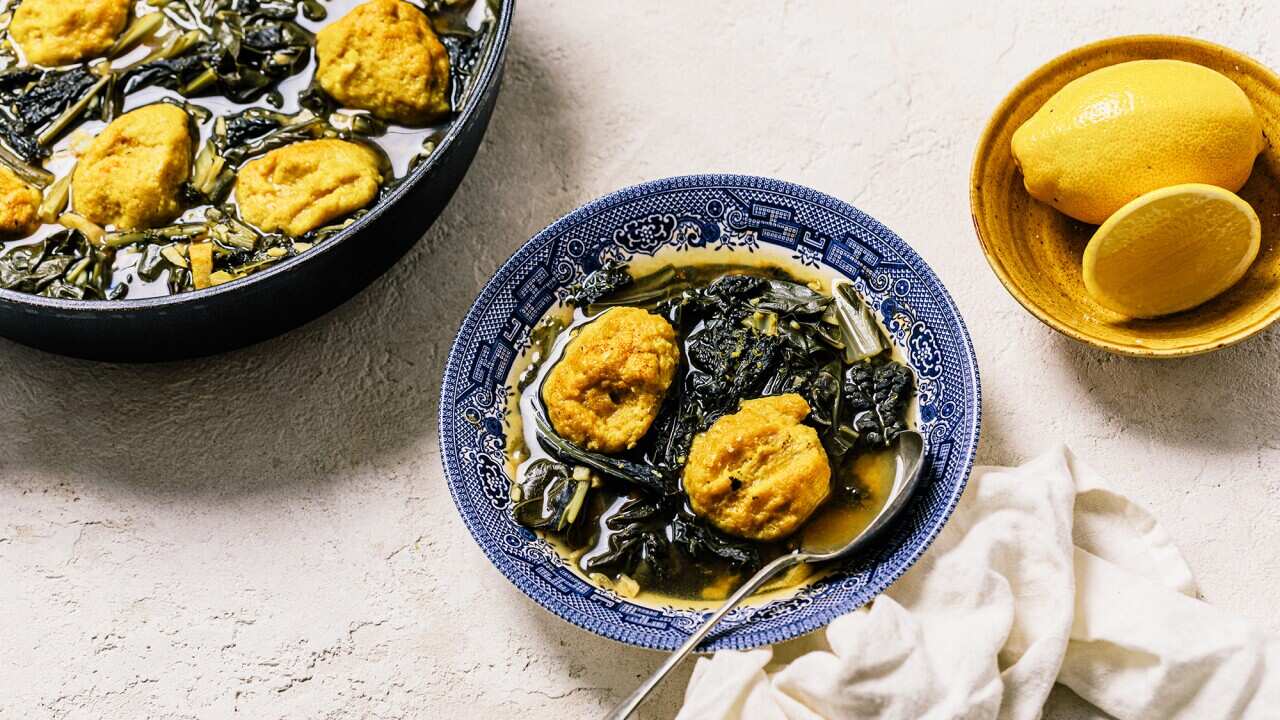makes
12
prep
30 minutes
cook
25 minutes
difficulty
Mid
makes
12
serves
preparation
30
minutes
cooking
25
minutes
difficulty
Mid
level
Ingredients
- 4 cups (500 g) all-purpose flour, plus more for shaping
- 100 g semolina, plus more for shaping
- 1½ tsp kosher salt
- 1¾ cups (400 g) water
- 2 tsp (10 g) plus 6 tbsp (95 g) canola oil, plus more for shaping
- 6 tbsp (85 g) salted butter, melted
You can mix and divide the dough up to 8 hours before shaping, allowing ample time for the gluten to relax.
Resting time 30 minutes
Instructions
Put the flour, semolina, and salt in the bowl of a stand mixer fitted with a dough hook. Add the water and 2 teaspoons of the oil and, with the mixer on low, mix until everything is well combined, about 2 minutes. Increase the speed to medium and mix until the dough is smooth, shiny, elastic, and pulls away from the sides of the bowl, about 6 minutes.
Generously coat a rimmed baking sheet with oil. Coat a large, smooth work surface with oil (a granite, stainless steel, or Formica countertop is ideal). Transfer the dough to the oiled surface. Using oiled hands, form a ring with your thumb and index finger and use it to squeeze off pieces of the dough into 12 equal balls (each should weigh about 85 g). Put the balls on the oiled baking sheet and roll them around so that they’re coated with oil, but keep the balls separate from one another. Put the entire baking sheet in a large plastic bag or cover loosely with plastic wrap and let the dough rest at room temperature for 30 minutes.
Meanwhile, put the remaining 90 ml oil in a small bowl, add the melted butter, and stir to combine.
Re-oil the work surface. Working with one piece of dough at a time, use the palm of your hand to flatten the ball and then continue to apply downward pressure with your palm to stretch it out into a rough circle about 25 cm across that’s so thin it’s nearly translucent. Using your hand, cover the surface of the dough with 1 scant tablespoon of the butter mixture and then sprinkle with a dusting (about 1 teaspoon) of semolina. Use a rubber spatula to lightly mark the midline. Fold the top of the dough circle down so that the edge extends about 1.5 cm beyond the line. Repeat that fold from the bottom so that the two edges overlap the center. Then fold in each of the other sides in the same way to form a 7.5 cm square. Transfer the m’smen squares to the oiled baking sheet seam side down and let rest for at least 15 minutes. Form the remaining breads in the same manner, warming the butter mixture if it begins to solidify.
Proceeding in the same order in which you formed the breads, put each square on a lightly oiled piece of parchment paper and stretch it with your palm until it has slightly more than doubled in size. If they resist stretching, let them rest a bit more before proceeding. Each finished m’smen should be a 18 cm square. Cut the parchment so that it extends just slightly beyond the square. Do not stack the breads as you stretch them — they will stick together.
Heat a large griddle over medium-high heat until a drop of water sizzles away almost immediately.
You can cook as many m’smen at a time as your skillet or griddle will hold. Lay the breads paper side up in the skillet and then peel off the paper as soon as the breads begin to firm; it will come away easily. Cook the m’smen until they turn first translucent and then brown in spots, 2 to 3 minutes per side. Transfer to a wire rack while you continue cooking the rest.
M’smen are most delicious eaten warm, but once cooled, they can be stored for up to 5 days in an airtight container in the refrigerator. They freeze well for up to 3 months. Reheat m’smen for 1 minute on each side in a hot dry skillet before serving.
Recipe and image from The Hot Bread Kitchen Cookbook: Artisanal Baking From Around the World by Jessamyn Waldman Rodriguez (Ten Speed Press, hbk, $59.99).
Cook's Notes
Oven temperatures are for conventional; if using fan-forced (convection), reduce the temperature by 20˚C. | We use Australian tablespoons and cups: 1 teaspoon equals 5 ml; 1 tablespoon equals 20 ml; 1 cup equals 250 ml. | All herbs are fresh (unless specified) and cups are lightly packed. | All vegetables are medium size and peeled, unless specified. | All eggs are 55-60 g, unless specified.









